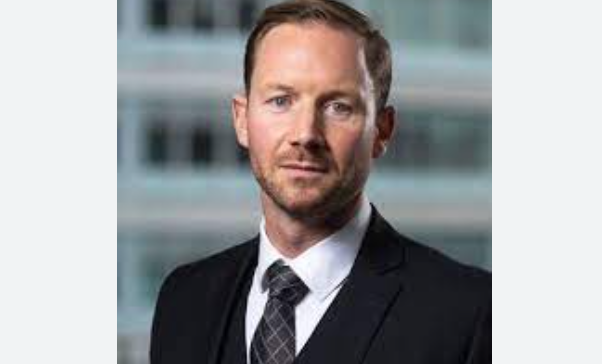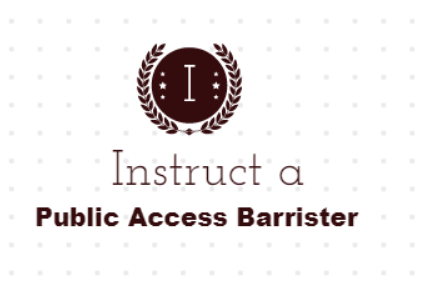By Sam Healey, Partner in Business Crime & Regulation at JMW Solicitors
If you are required to attend a ‘compelled’ interview by an investigating authority, proceed with considerable caution and ensure you have instructed an experienced legal team. During complex and far-reaching investigations, individuals can be compelled to attend for an interview to divulge information where they may otherwise be reluctant to answer questions voluntarily or the information is confidential.
Certain investigating agencies have enhanced powers when it comes to investigating and obtaining information from suspects or possible witnesses. Whilst these powers vary depending on the agency conducting the investigation, generally a notice is served in accordance with the legislation that governs their powers (otherwise known as a ‘statutory notice’). Similarly, a ‘disclosure notice’ may also be served in accordance with The Serious Organised Crime and Police Act 2005.
It is important to remember that whilst it may feel you have little choice in complying with the notice (given the possible criminal offences that may follow should you fail to comply), there are certain safeguards and restrictions on what can be pursued by investigators. In addition, steps can be taken to mitigate the situation for you and certain practical steps can be taken which may allow the opportunity to consider in advance how an interview may take place and what may be raised.
How do compelled interviews differ from other forms of interviews?
A ‘compelled’ interview differs from a voluntary interview under caution or an interview under caution that follows an arrest. Whilst interviewees have a legal right to silence during an interview under caution, this is not the position with a compelled interview. Interviews under caution conducted on a voluntary basis or following an arrest, are conducted in accordance with the Police and Crime Evidence Act 1984 (and related PACE codes). The powers conferred upon an investigating agency is governed by legislation, examples are provided below:
- Serious Fraud Office (‘SFO’) – in accordance with section 2 of the Criminal Justice Act 1987, they have the power to compel the attendance of a witness at interview, answer questions put to them during an interview and, to produce documents;
- The Health and Safety Executive – under section 20(2)(j) of the Health and Safety at Work etc Act 1974, inspectors have the power (when investigating a breach of health and safety legislation), to require any person, who the inspector has reasonable cause to believe is able to give any information relevant to the investigation or examination, or require answers to such questions as the inspector thinks fit, and to sign a declaration of truth to the answers;
- Environment agency or local authority – section 108(4)(j) of the Environment Act 1995, confers powers on inspectors, when investigating breaches of environmental legislation, to require any person, who the inspector has reasonable cause to believe is able to give any information relevant to the investigation or examination, or require answers to such questions as the inspector thinks fit, and to sign a declaration of truth to the answers;
- Financial Conduct Authority (‘FCA’) – under sections 171-173 of the Financial Services and Markets Act 2000 (FSMA 2002), an FCA investigator may require a person who is the subject of an investigation, or any person connected with the person under an investigation to provide documents, information, or attend an interview. With investigations into a particular breach (usually criminal offences), the FCA’s powers can also extend to any ‘unconnected’ person if the documents or information are “necessary or expedient” for the purposes of the investigation;
- Competition and Markets Authority (‘CMA’) – in respect of alleged breaches of competition law, the CMA can utilise section 26(a) of the Competition Act 1998, to require any individual connected to a party to their investigation to answer questions on matters relevant to the investigation. Section 193(1) of the Enterprise Act 2002 also confers further powers on the CMA, as individuals under investigation for criminal cartel offences (or other person who the CMA reasonably believe holds relevant information) must answer questions on matters relevant to the investigation. However, if the criminal cartel investigation involves serious or complex fraud, the investigations may be investigated and prosecuted by the SFO instead of the CMA.
In addition to the above, investigating authorities such as the police or HMRC can utilise section 62 of the Serious Organised Crime and Police Act 2005 to provide a disclosure notice to individuals, including innocent individuals (who have not been accused of a criminal offence), compelling them to provide information relevant to an investigation, if there are reasonable grounds for believing that person has relevant information likely to be of substantial value.
The Companies Act 1985 also provides further powers under section 434 of this Act, and inspectors can compel officers and agents (both past and present) of a company under investigation to provide documents, attend an interview, and assist with an investigation.
A failure to comply and attend an interview, without a reasonable excuse, may be a criminal offence and the punishment can vary subject to which authority is investigating. A criminal offence may also be committed if it is shown that false or misleading information has been provided or an individual has (or permitted) the falsification, concealment, destruction or otherwise disposes of documents known or suspected to be relevant to an investigation.
Whilst an interview with a witness can be conducted under compulsion, there are restrictions on the admissibility of the contents of the interview in criminal proceedings against the person interviewed. These are statutory safeguards restricting how information is used when obtained using compulsory interview powers. However, if there are subsequent trial proceedings which relate to the offence of providing false or misleading statements during the interview, or the individual is prosecuted for a different offence and makes an inconsistent statement, the contents of the information obtained under the compulsory interview can be used in evidence.
Which agencies have the authority to conduct compelled interviews?
The are numerous agencies and investigative organisations that can conduct compelled interviews as referred to above. The following authorities have the authority to conduct a compelled interview:
- Police or National Crime Agency officers;
- HMRC;
- Financial Conduct Authority;
- Health and Safety Executive;
- Environment agency or local authority;
- Serious Fraud Office;
- Competition and Markets Authority.
Most investigating agencies utilise their rights to conduct compelled interviews in different ways, so it is crucial for a suspect or witness to obtain legal advice, assistance and representation from an experienced and specialist lawyer.
How does legal representation help?
Being compelled to attend an interview does not automatically imply that you have done something wrong. However, it may place you in a very difficult position. For example, if the company that you work for is under investigation or has ‘self-reported’ issues to the authorities, it may be that either the company you work for has commenced its own internal investigation or the investigating authority wants to speak with potential witnesses. In this scenario, it may raise various issues not only relevant to criminal and regulatory issues, but also employment and civil. You will need a robust legal team who will have the knowledge and experience in all potential areas to ensure you receive the necessary advice to ensure your position is protected.
Your own lawyer can assist in preparing you for the interview, anticipate likely questions, and advise you on your legal rights during the process. It is important to remember that your lawyer has professional obligations to act in your best interests.
Where an interview is conducted by an investigating authority, whilst the authority may require the interview to be conducted under legal compulsion, there is always the option for it to be completed on a voluntary basis. However, careful consideration is required as to whether you should attend on a voluntary basis or under compulsion given the possible consequences of each.
As an account by a witness may later lead investigators to regard them as a suspect, a witness should not attend any interview without having received legal advice in advance.
The Business Crime and Regulation department at JMW have exceptional experience in handling complex and serious criminal and regulatory cases nationally, with many matters having an international element.




